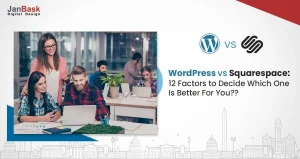
E-shopping, sometimes known as internet purchasing, is becoming more popular. Large businesses are reaping the benefits since it is generating enormous income and displaying impressive potential.
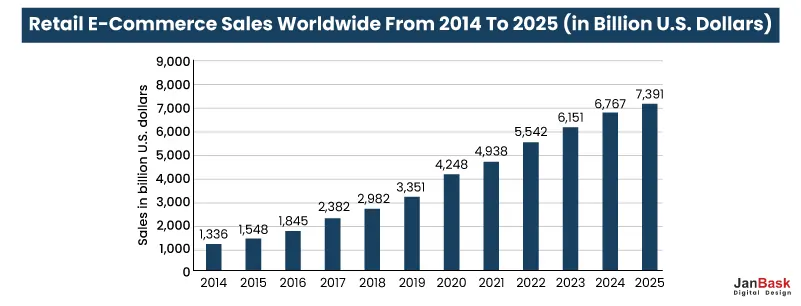
However, it's still difficult for companies to predict the expenses of an eCommerce website, which is why we've chosen to provide this comprehensive post for you.
Each choice, activity, and stage in launching an online business necessitates additional money. Aside from that, the particulars of the website or app you create are necessary. To streamline your process, we've compiled a list outlining the many aspects that will help you determine your eCommerce website's final cost.
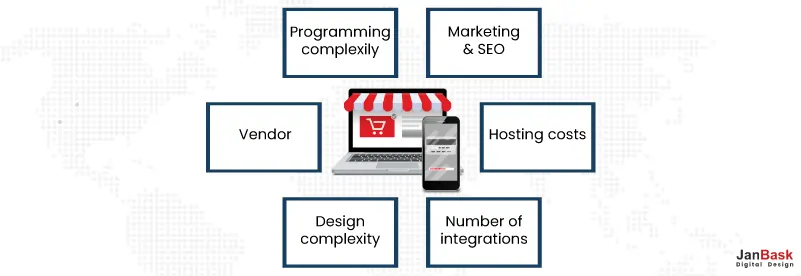
An e-commerce website might be a valuable investment for any internet marketer or business-savvy innovator as retail goes farther into the digital era. But, even if you've heard of it before, what does it mean?
You may establish an eCommerce company, stand out from your competitors, and increase your client base today by focusing on some of the most critical parts of the business. For those considering starting an eCommerce company, we'll also discuss the criteria that determine whether or not it's a brilliant idea.
So, is this year good to start an eCommerce business?
If you're interested in learning more, keep reading.
Ecommerce, also known as electronic commerce, internet commerce, and online commerce, is a business strategy in which transactions are conducted via the internet.
Then, what is an ecommerce store?
An ecommerce store or business is one that sells things online.
For example, Amazon.com is a well-known name in the e-commerce market.
Start Your eCommerce Journey Today!

Any firm that buys and sells goods or services over the internet is an ecommerce business. To carry out these online transactions, ecommerce companies will use digital means of transferring money and data.
Lets dig deeper into what is ecommerce business.
Selling products and services through the internet is the primary method by which ecommerce businesses make their money. In order to complete an e-commerce transaction, it gives customers the option of selecting from a variety of payment options. Your choice of ecommerce business model will determine the type of business you start.
For those who want to establish an online business, there has never been a better moment than now to do it.
Selling products and services via the online market is at the heart of an ecommerce website's business plan. Therefore, to answer what is ecommerce website, it means any website where you can buy anything online is an ecommerce platform.
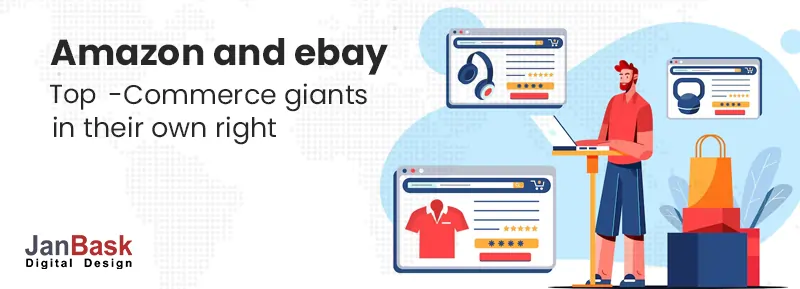
You're undoubtedly already familiar with e-commerce. Ecommerce giants Amazon and eBay are leading the way in making online purchasing more convenient for consumers.
You may buy just about everything on an ecommerce website, from clothing to food. As a result, the market will be congested. However, this does not imply that you can't create your internet shop in your specialty.
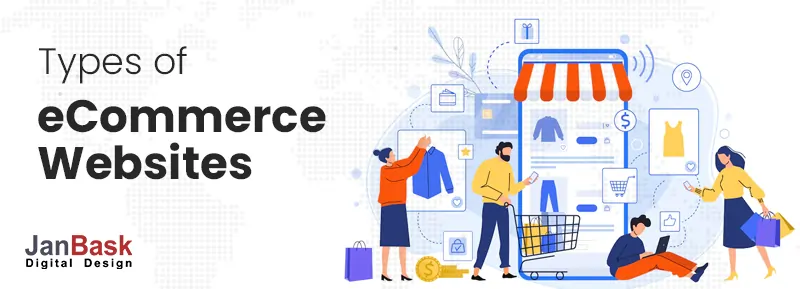
There are six different eCommerce websites, depending on the parties involved. So please take a look at them one by one.
B2C ecommerce is the most frequent business model in both brick-and-mortar and online retailers.
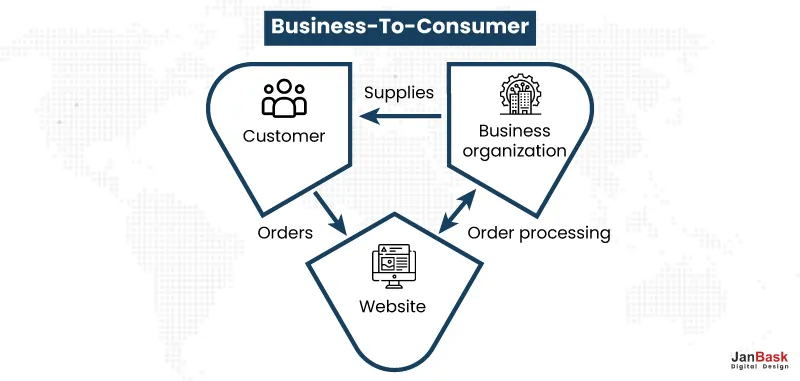
Business-to-consumer (B2C) ecommerce refers to transactions between companies and consumers. Business-to-consumer transactions, such as purchasing a phone online, are one example.
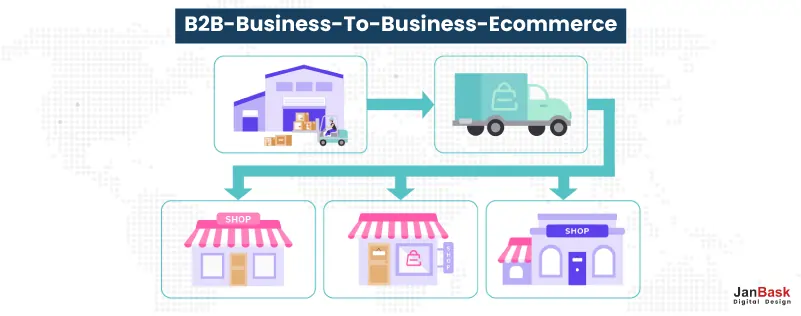
What is B2B Commerce?
Businesses are the only players in the B2B ecommerce paradigm. Here, a corporation sells its products or services to another. Business-to-to-business (B2B) ecommerce is distinct from B2C (business-to-consumer) ecommerce. Raw materials or items that need to be packed until being sold to clients are often the focus of B2B e-commerce transactions.
Your company could be interested in hiring our professionals for ecommerce development or digital marketing. Business-to-business eCommerce is all about because you're using our services to run your company.
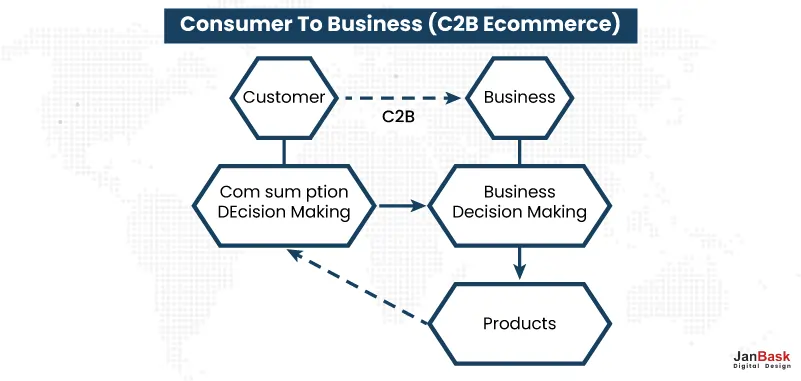
Customer-to-business e-commerce (C2B) enables consumers to sell their products and services to companies. Since C2B clients provide products and services to companies, they may work together on projects and help businesses make more money.
C2C is one of the first types of ecommerce that has ever been used. To put it another way, all sales made between customers and customers are customer-to-customer sales. For example, Amazon and eBay are two of the numerous online marketplaces where individuals purchase and sell products.
A transaction between a government agency and an online company is known as B2A. Legal papers, social security, and other comparable items and services are often purchased and offered under this business model.
When the government delivers products and services to companies, the A2B e-commerce model is born. E-learning, data centers, and government procurement are all instances of business-to-business e-commerce.
Even though A2B and B2A patterns are only included in the broader sense of e-commerce classification, we covered all of these categories to offer you a comprehensive grasp of ecommerce categorization. The B2C or B2B models are often discussed while discussing ecommerce.
Next up in the ecommerce business post is a discussion of how ecommerce benefits businesses.
You may gradually boost your firm by providing 24x7 assistance, which is made feasible by an eCommerce web development company. With a brick-and-mortar shop, you can't expect to be able to keep it open 24 hours a day. In this case, the internet retailer triumphs!
Automated web stores can run around the clock, even when you're sleeping, so you don't have to worry about missing sales. You can manage your online store, which will need no staff and costs like a physical one. Save a lot of funds if you manage your time correctly. The concept of "time is money" brings up a wealth of lucrative business prospects.
You may sell your products and services all over the globe with the help of the top eCommerce website creation services.
It does not need more time and effort to launch a general e-commerce business than a brick-and-mortar one. It is possible to obtain appealing pre-made themes for developing your shop on many eCommerce platforms such as Squarespace, Shopify, etc. Let’s take a look at some of the statistics showing the sales growth.
Maintenance, hosting, PCI compliance, and so on are all things that the platform looks for. Before you can begin selling on other marketplaces, such as eBay or Amazon, you must first create an account with them. This has been made possible by several SaaS-based e-commerce systems that have made the selling process very simple and efficient.
Choose e-commerce web designs that will help you gain the confidence of your online customers and persuade them to purchase from you.
Compared to starting a brick-and-mortar shop, creating an eCommerce company is less expensive. The majority of online marketplaces and e-commerce websites provide free registration. However, in exchange for allowing you to list your products for sale on their marketplace, they often charge a nominal fee, calculated as a percentage of each transaction.
Drop shipping is a great way to obtain goods without spending any of your own money. Organic search, social networking, and Google AdWords are all low-cost options to promote your internet company. To avoid payroll costs, you may run the firm yourself.
Customers are increasingly turning to the internet to locate the goods and services they need. While 71% of customers began their search for a product on the internet last year, that figure has risen to 87%.
It would be best to understand the significance of web development in this context. First, it doesn't matter whether consumers buy the merchandise in a physical shop or online from an auction site like eBay or Amazon; their search begins online. When doing an internet search for a product, consumers weigh many factors such as price, brand, and other details.
In this regard, a brand's online presence is critical to reaching its prospective consumers.
Another benefit of selling online is the ease with which data can be gathered, assessed, and then acted upon. For example, customers' interactions with your website may be tracked and analyzed via an online store.
You'll learn how to improve the consumer experience and increase sales on your website through this article. The ability to monitor client contact helps you identify and optimize feedback loops for any significant insights that will improve your customer experience.
This information should be collected and used morally, and it should be protected as much as possible.
Of course, the main objective would be to get your company running and generate loads of cash from it. But we all understand that that is not adequate; you cannot adapt or come up with ways as you go.
Any company begins with a considerable lot of planning. Business planning is crucial when you go through all the planning decisions and a potential "plan B" for every difficulty.
In general, a company's planning should comprise the following elements:
Since you already thought about developing your website, you could even have a handful of name draughts? for it, and they are excellent, brief, snappy, and suit your company concept wonderfully. But, is there a supply of them? Yes, you may go to the following stage if the response is "yes." However, if the name you choose already exists, you'll have to think of something new.
Some free services may be used by folks in this circumstance or those who still have a vague concept of what the name should be.
Using tools like Oberlo and Shopify company name generators, you may get a list of possibilities for a website name based on keywords you provide. In addition, they produce names that are accessible at the moment of the search, which is one of their most appealing features.
These are some suggestions for naming your business:
Avoid using niche names if you want to extend your product line to include non-niche items.
You have to pick a website-building platform to start an online business. Many solutions are now available to build an ecommerce website, and each has its pros and cons.
The first thing will be figuring out what kind of platform you need. Like Shopify, Squarespace, and Wix, website builders are available. All-in-one solutions for digital commerce are available from them, including domain name purchases and delivery. All of this can be controlled and set up in your account, and you can do it quickly. Such ease does, of course, come at a cost.
There are also robust content management systems (CMS) like Magento and WooCommerce to consider. Many CMS options are free, but they often need some level of coding to get started. In addition, you'll need to choose a third-party provider like GoDaddy, Bluehost, or Namecheap and acquire the domain name and hosting services for the website.
Check out our comparison of the most popular website builders to make an informed decision.
Make sure your consumers have a wide range of options regarding payment methods while setting up your business. If you want a customer to buy from you, you'll have to have them sign up for a PayPal account, for example.
Your online business should be capable of accepting a wide variety of payment methods. At the very least, the ones that your prospective clients like the look of.
Also, ensure that your system accepts coupons or discount codes before using them. Because offering special deals and discounts throughout the busiest times of the year is a terrific way to keep current customers happy while also bringing in new ones. So again, preparation is vital when it comes to promotions.
Don't overlook the importance of safety. Inquiring minds want to know. Nowadays, every website that deals with private data, such as credit card numbers, must have SSL. Users of popular browsers are informed whether a website has this degree of security or not.
Consequently, customers will be less inclined to buy from you if you don't have SSL installed. As a result, SSL certificates are offered by all hosting providers and website builders like Shopify.
Customers have learned to demand aesthetically beautiful internet retailers these days. Therefore, having high-quality images and an eye-catching ecommerce web design theme is essential. In addition, there are the following requirements:
Most website-building systems provide a variety of pre-made themes. In addition, websites like Colorlib, Themeforest, and others offer a wide variety of ready-made themes for CMS systems.
Alternatively, you may employ an ecommerce website design company to construct your unique website. However, this will cost more money and take longer to implement. So, in the beginning, it's not required to do it at all.
Unless you're a local business with delivery service? Your choice of shipping partner will depend on whether you want to deliver the items personally or whether you plan to have clients pick them up from the warehouse. Many shipping alternatives are incorporated into services like Shopify. They can even figure out shipping costs on their own.
Free delivery is ideal if you have a large enough profit margin built into your product pricing. It's a tried-and-true method that's shown to increase sales.
At the very least, compute the minimum order amount if free delivery isn't an option for every modest transaction. Then, customers that spend a specific sum of money in their business will still be able to take advantage of your free shipping policy.
SEO (Search Engine Optimization) is a significant component of marketing. Your website should appear when someone searches for "leather shoes?" on Google, for example, if you're a leather goods retailer. Get free, targeted traffic to your website; search engine optimization (SEO) is necessary.
Search engine optimization (SEO) is a wide-ranging subject that you can't afford to ignore. Building a successful website requires planning and consideration of the user's perspective.
Significant aspects of search engine optimization (SEO) for online retailers
Going multichannel is the next step for you as an online vendor. You may take your business to the next level by selling on Amazon, eBay, Walmart, Rakuten USA, and many other online marketplaces.
Pick from a wide range of ecommerce platforms depending on your budget, interests, and corporate requirements. A list of the finest ecommerce website builders currently on the market has been put together by us.
Since its start in 2004, Shopify has become a well-known ecommerce platform. A total of 2,921,565 businesses in the industry make use of it. You may choose from various delivery options, including flat-rate and express shipping and automated taxes. You can also select from over 150 payment options, including credit cards, PayPal, etc.
Shopify is a self-hosted e-commerce platform with pre-installed social network connectors and SEO features. Those needing design, marketing, or development assistance may turn to the Shopify Experts team.
There are a lot of small enterprises that might benefit from this all-in-one eCommerce platform. To top it all off, Shopify has unveiled version 2.0 of their online shop, which is 35 percent quicker.
It's best to use Shopify 2.0 if you're going to construct an eCommerce platform on the platform. Many Shopify applications are available to help your OS 2.0 shop succeed. Hire Shopify developers if you don't want to deal with the Shopify 2.0 problem on your own.
Growing medium-sized enterprises may benefit significantly from Magento's high degree of flexibility when it comes to ecommerce platforms. In addition, when it comes to complex e-commerce capabilities, Magento has everything you need, including a content management system and customer segmentation options.
When it comes to entirely configurable ecommerce solutions, Magento Development is an excellent choice for companies.
BigCommerce is another widely used e-commerce platform. However, BigCommerce offers a more comprehensive set of capabilities compared to Shopify.
BigCommerce's customer support staff is on call 24 hours a day, seven days a week, to help businesses switch to their platform. In addition, Bigcommerce's multi channel ecommerce capabilities allow retailers to sell on Amazon and eBay and their websites.
Payments may be made using PayPal, Google Checkout, Stripe, and Authorize.net in the same way as Shopify does.
With this fully hosted solution, you can build a powerful online shop in the cloud. In addition, Salesforce hosts the whole platform so that merchants won't worry about maintenance or development.
Several features are created for omnichannel retailers in Salesforce, making it easier for merchants to sell in brick-and-mortar locations and online.
This CRM platform is best suited for large enterprises needing a robust and scalable CRM solution.
One of the most widely used open-source e-commerce solutions is WooCommerce. It comes with various WordPress-specific themes to help you build a unique online store.
In addition, you'll be able to purchase an infinite amount of digital items and fully customize them, manage your orders, and get free delivery. Small companies using WordPress-based websites would benefit the most from this e-commerce platform.
Because every business is unique, it isn't easy to calculate precisely how much an eCommerce website will cost. However, if you consider your company's aims and objectives, you may quickly come up with a rough estimate.
You may contact an eCommerce website design company if you want to learn more and obtain a precise estimate for eCommerce website creation.
It is best to work with well-established, reputable eCommerce website design companies with a proven track record of delivering comprehensive eCommerce web and app development services.
Interested in Starting Your eCommerce Journey?

P
My website has been built on Magento and I have had a great experience with it.
O
Very insightful and detailed blog.
B
eCommerce websites are really in a boom. It’s a good idea to make one right away.
L
I have had a good experience with your team.. You guys did a great job in creating my ecommerce website.
C
Amazing article.
L
It is a great blog post. Helpful and Informative blog. Thanks for sharing this information with us.
J
Thanks for your feedback Louie.
S
Thank you for sharing this insightful blog post. Your expertise on the topic was evident, and I appreciated the way you presented complex ideas in a clear and concise manner. To delve deeper into this subject, click here.